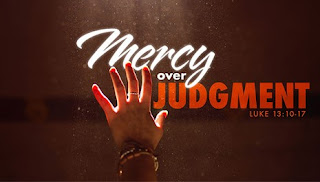This was an interesting line of thinking. Let me know what you think of it.
I
was reflecting about prayer. I pray for a lot of things. But
I
don't see the changes, the effects of my prayers, as much as maybe I
would like.
Part
of that reason, no doubt, is because I pray for less-concrete
things,
and for people that are a long ways away. But for whatever reason, I
was thinking
about it, wishing
that I was seeing more results, at
least more visible
results, from my prayers.
And
since Jesus is my standard, I was thinking about him. He sure saw
visible
answers to his prayers in the stories the
Gospels told,
didn't he? I’m
not
trying to get big headed about it or something, but if Jesus gets to
see the answers to his prayers so comfortably so quickly so easily,
what's wrong with me wanting to see visible
answers to my prayers quickly, easily?
So I consider that. And I realized, yep, it’s an excuse all right. It's an excuse for people who don't see miracles, maybe. Maybe it's an excuse for people who are tired of trying, or who never really tried hard in the first place. Or something. It’s a way of justifying not expecting to walk in the things we see Jesus, our example, walk in.
But the reality is that every single time that we see Jesus praying, we see dramatic, visible answers. We don't ever see his prayers unanswered. (Yes, there are some times that he prays that we don't know what he's praying for, so we can't tell whether those were answered or not. That’s not our issue today.)
So I was asking father if this desire to see visible answers quickly is appropriate, if this is a good thing to ask for.
Immediately, Romans 14:23b came to mind. “Anything not of faith is sin.”
When I'm asking a question and something pops in my head like that, I tend to assume that it is related, that it’s something of an answer. And I also try not to jump to conclusions, so I reflected: I thought about it some more.
And I realized something.
If I need visible answers to my prayers in order to pray with faith, in order to have confidence that father is hearing me and doing things, then that's not faith. If I need to see, then I'm basing my prayers, my life, on sight, not on faith.
Oops. There’s my answer.
Jesus got to see immediate answers to his prayers. That does not mean that his prayer life was based on what he saw. We know from the gospel stories that he took a fair bit of time alone with God, often in the wee hours.
I have had times where I knew the answer was coming before I encountered the situation. I’ve had many times when I knew what I was supposed to pray beforehand.
That certainly fits the facts as we know them: Jesus saw the answers in the spirit, by faith, when he was talking to Dad in the morning. When he encountered the situation during the day, his response was based on his encounters with father in the wee hours, not on what he saw in that circumstance.
So even though he saw the answers as he prayed, his prayers were not built on the foundation of what he saw. His prayers were on the foundation of his time with Father in the morning. He was walking by faith, not by sight, even though he could see.
The thought drifted across my mind, “If you always get to see the immediate answers to your prayers, would you be walking by faith? Or would you be walking by what you see?”
And as translated by Romans 14:23, that question is would I be walking by faith? Or would I be walking in sin?
So I am considering the idea that I need to be more intentional about seeing the answers that I am praying for in the spirit, in my private times with Father, before I look for them in public.
And maybe I need to guard my wishes. It appears that I might have been wishing for an easy way to walk in sin. No wonder Father doesn't want to answer that prayer.
So how do you see it?

.jpg)
.jpg)

.jpg)


.jpg)
.jpg)



.jpg)
.jpg)




